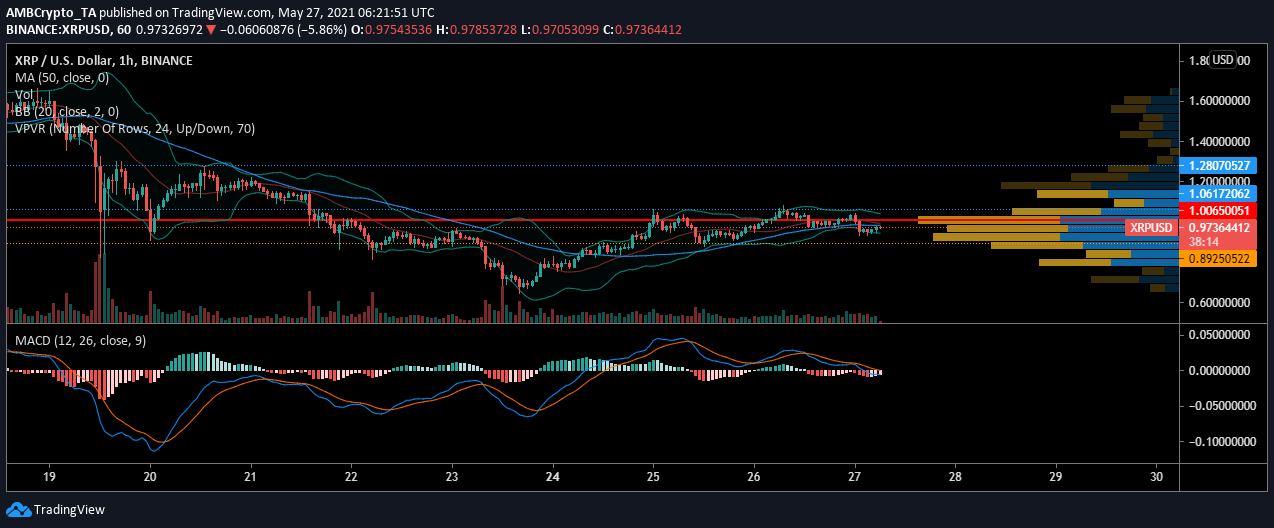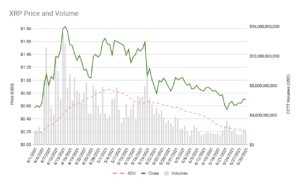Throughout its existence, most of the time, the stock market has been a mild-mannered, well-behaved, clinically sane house pet.
Other times, it’s been crazier than a dog in a hubcap factory.
Wild market fluctuations — whether they’re up or down — can send shareholders into a tizzy. They produce elation in fear in massive waves and can goad amateur investors into decisions they really shouldn’t be making.
How do you tend to stock market worries, and keep yourself from swallowing stock market hype?

Don’t Panic
The first rule of Stock Market Crazy Club is “Don’t panic.” (You were expecting something else?)
The New York Stock Exchange has proven to be a resilient beast for over 300 years. Yes, there was one rather dramatic crash in 1929 that affected society — the entire world, actually — for about a decade. It forced investors and commodities to change their behavior. It also resulted in regulations intended to prevent another crash from happening again.
By and large, these measures have worked. The US stock market took only two years to recover after the next big crash in 1987. The 2000 dot-com bubble burst — caused by aberrant over-speculation in an essentially new industry — took about the same time to get washed out of investors’ heads. It took a little longer to get back to normal after the 2008 subprime mortgage crisis, but order was eventually restored.
Of course, there’s no way to predict the future conclusively. Today the stock market is at dizzying heights. There’s a good chance there will be another pullback in the not-too-distant future. Now that you know that — well, don’t panic.
You may experience anxiety and tension, and that’s fine. But don’t let that devolve into full-bore fear and desperation. That’s an emotional response that will affect your decision-making.
Don’t Get Giddy
The stock market has had some crazy lows. But the highs can be just as crazy. And they make investors just as crazy as the times when the crashes made them crazy.
You see this all the time when investors start piling money into a hot stock, sending the share price up. This causes some investors to rush to get in on the stock. Conversely, those who didn’t jump in on the stock in time to realize meaningful gains get despondent.
That calls to mind a very famous quote from algebraist Carl Jacobi, which was popularized by Berkshire Hathaway vice chairman Charlie Munger: “Invert — always invert.”
Here’s what that means: When you think about solving a problem or setting a goal to accomplish, you usually think about the steps you need to take to get it done. But the alternate approach is to consider what would happen if it failed.
How does this apply to the stock market? Instead of getting nervous about missing out on a hot stock, think about how it could all go horribly wrong.
If you got nervous and bought GameStop stock at $300 a few months ago, you likely are out about $150 now. Those who didn’t and watched from the sidelines anticipated the price gain was probably getting overvalued. There was no way GameStop’s fundamentals could possibly validate the share price.
That’s an example of inverted investing: Anticipating that something can go wrong and surmising what would happen after it does. It happens all the time, especially with flavor-of-the-month stocks and the GameStop situation, which was basically a well-executed practical joke. Instead, look at the reality of the situation and find more dependable, predictable securities to buy into at the right time.

Diversify
One of the most common pieces of advice about maintaining a solid stock portfolio is to diversify your holdings. True, this is something you’d ideally do before the stock market gets crazy. But there’s never any bad time to do so, and it can serve as a great form of protection for your assets when you do.
Oftentimes, when there’s a major trick or downturn in the stock market, it can have a pronounced effect on only an industry or two. The dot-com bubble burst is an example of this: Most IT companies rocked into severe losses (or complete liquidation), but other industries held their own. But if one’s portfolio contained nothing but IT stocks, it probably took a huge nosedive.
Having a diverse portfolio is a form of controlling your losses. If a downturn hits one market segment or industry sector, you’re better protected if you have sufficient coverage in other sectors. Sure, there will be one-off days when the entire market absorbs a big blow, but with a diversified portfolio, you can weather industry-specific storms without losing too much.
Exchange-traded funds (ETFs) are excellent vehicles for instant portfolio diversification. They’re like mutual funds, but you can trade them straight on the stock exchange like common stock. An ETF can track stock market indexes, companies within a certain tier of market value, industries, trends, or other qualities. A healthy batch of just five or ten ETFs, alongside your individual stocks, can provide a solid underlying diversity for your portfolio.
Keep a Journal
Becoming a successful stock investor is a matter of trial and error, at least in the earlier stages of the whole adventure. While it’s practical to keep track of your earnings history, and especially easy when you employ an online brokerage full of data, it doesn’t tell the whole story of your smart moves and mistakes. In other words, it answers the questions “What?” and “When?” — but not always “Why?” or “How?”
Many of us decide to invest in certain stocks impulsively, or after a modicum of research. Sometimes the impulse pays off; many times it doesn’t. When we do take some time to find out more about a security before we buy in, we don’t always remember our reasoning for doing so the next time we make a move. We don’t learn our lessons.
That’s where keeping an investment journal comes in handy. It’s a written record of your stock investment history. But it doesn’t have to be limited to recording your transactions and tracking their process. It’s also a place to record your reasonings, thoughts, discoveries, and details of your research. An investment journal is also a great place to write down your investment goals and keep you on track toward reaching them.
Most of all, it serves as a repository of information about everything you learn on your investment journey. That can help you make more informed decisions in the future based on your own experience. There are many great financial experts and advisors, but as with life, there’s no more effective way to learn about investing than using your personal history. A good investment journal is your textbook — one that’s inherently tailored to you.
Trust the Biggest Stock Market Cliché
There’s a cliché about the stock market that’s so prevalent, you probably first heard it when you were a teenager: “Buy low, sell high.”
It should be said: That’s not always the best strategy for profiting from stock investments. During normal times, it’s usually better to open yourself up to a little risk if you want to profit. And long-term investments on blue-chip stocks, if you’re lucky enough to have them, usually maintain enough value that you don’t want to sell them if they maintain consistent growth.
But when the stock market’s swinging into extreme territory, investors tend to ride on their emotions. A huge drop in prices makes them panic and sell off, and a miniature boom can send them scurrying to buy in. That can lead to some bad decisions.
At those times, it’s best to recite the mantra: “Buy low, sell high.” It’s the most basic, simple advice, but it’s a way to keep yourself centered when the stock market’s having one of its little episodes. Don’t let drastic drops or rises in value influence your investment strategy too much.
Filter Out the Noise
When Wall Street is going through a dramatic swing, you’ll inevitably find a lot of financial pundits and experts swarming the media trying to ease stock market worries. They’re almost omnipresent during normal times. Imagine how they invade the news networks when there’s an impending crash.
Many of them are certified experts who sincerely want to help investors make the best decisions. But some of them are entertainers first and have to create a certain experience to keep viewers watching. Others have personal agendas that may influence the advice they give.
The other thing about experts is that you’ll get differing, even clashing opinions from all of them. There’s no consensus among them even in the best of times. If you feel yourself being swayed by one of them, know that there’s someone else making a persuasive case in the opposite direction that you haven’t come across.
The answer to this problem is quite simple: Trust your objective data. Listen to voices that aren’t urging you to make any sudden moves. Learn what indicators actually work to break through the hunches of the talking heads.

Gorilla Trades: We’re Crazy — About You
Gorilla Trades is your source of reason when the stock market goes off the rails. Find out about our data-driven stock picks and our recipe for success by starting a free trial today.
Source: https://www.gorillatrades.com/get-through-crazy-stock-market/
- Adventure
- advice
- advisors
- All
- among
- Anxiety
- Assets
- Berkshire
- Berkshire Hathaway
- BEST
- Biggest
- boom
- brokerage
- buy
- caused
- chairman
- change
- club
- Commodities
- Common
- Companies
- Consensus
- Crash
- crisis
- data
- diversification
- Diversity
- Drop
- Earnings
- Effective
- emotions
- ETF
- ETFs
- exchange
- experts
- factory
- financial
- fine
- First
- form
- Free
- full
- Fundamentals
- funds
- future
- GAMESTOP
- good
- great
- Growth
- handy
- High
- history
- House
- How
- How To
- HTTPS
- huge
- impending
- industries
- industry
- influence
- information
- investing
- investment
- Investments
- investor
- Investors
- IT
- jump
- keeping
- large
- lead
- LEARN
- Limited
- Liquidation
- major
- Making
- man
- Mantra
- Market
- Media
- money
- months
- Mortgage
- move
- moves
- Nasdaq
- networks
- New York
- news
- online
- open
- Opinions
- order
- Other
- Others
- Panic
- portfolio
- price
- Profit
- protection
- Reality
- recipe
- Recover
- regulations
- research
- response
- Risk
- rush
- Sectors
- Securities
- security
- sell
- setting
- Share
- Simple
- smart
- So
- Society
- start
- stock
- stock market
- Stocks
- Strategy
- street
- success
- successful
- talking
- The Future
- time
- track
- Tracking
- trade
- trades
- Transactions
- Trends
- trial
- Trust
- us
- US Stock Market
- value
- Vehicles
- VOICES
- Wall Street
- waves
- WHO
- within
- words
- Work
- world
- years





